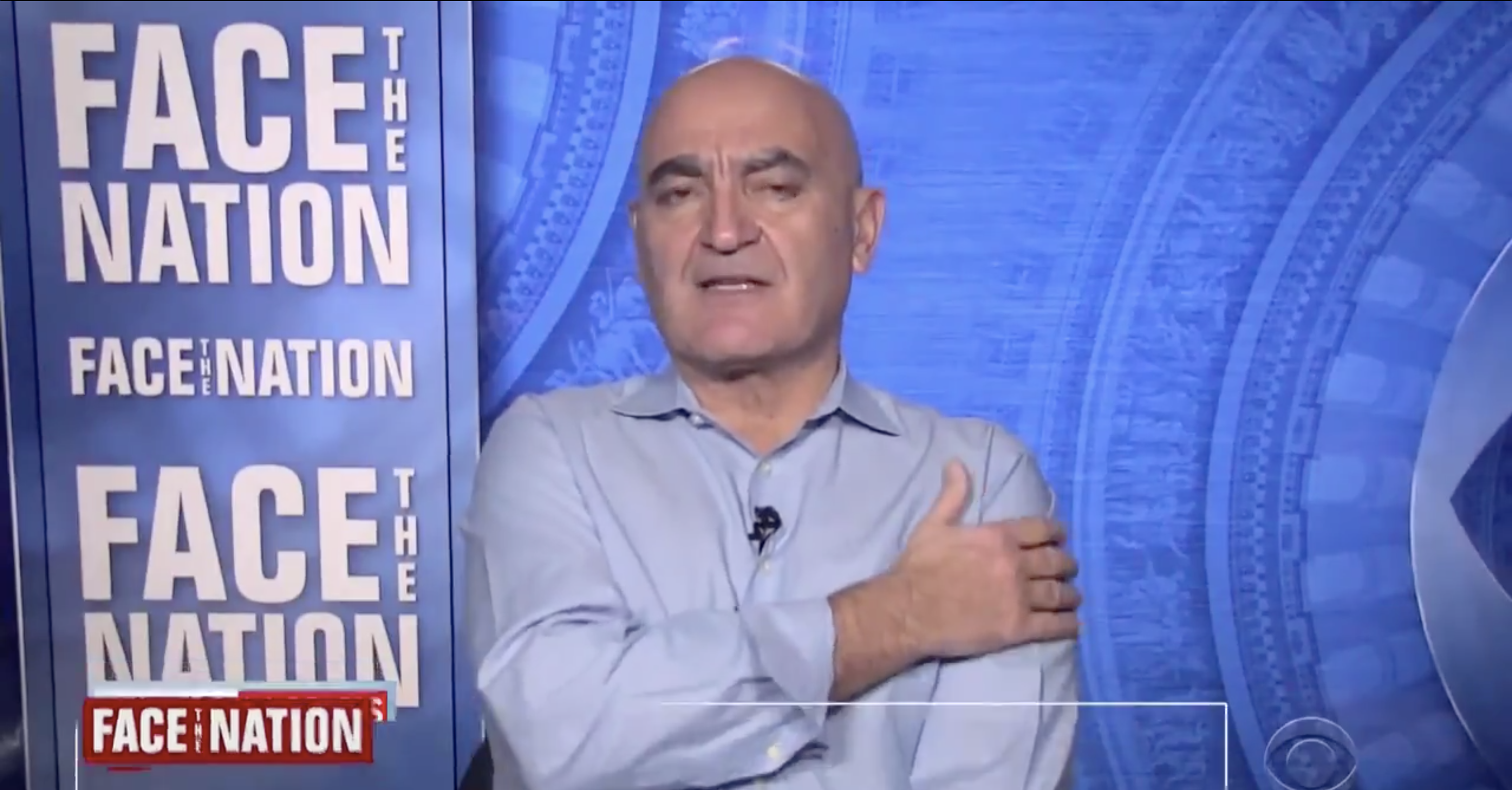White House vaccine czar confident in long-term safety of Pfizer, Moderna COVID-19 shots


A free daily email with the biggest news stories of the day – and the best features from TheWeek.com
You are now subscribed
Your newsletter sign-up was successful
Mocef Slaoui, the chief scientific adviser to the U.S. government's Operation Warp Speed COVID-19 vaccine initiative, told CBS News' Margaret Brennan Sunday that, "based on the data that I know," he expects the Food and Drug Administration to grant emergency approval to the Pfizer and Moderna vaccines (the former decision could come next week), though he clarified that it is ultimately the agency's decision. Then, "the minute" they're approved, "shipments" will start, and, perhaps 36 hours later the first immunizations could be administered, he said.
If all goes according to plan, Slaoui believes the vaccinations could positively affect the most "susceptible" segments of the U.S. by January and February, although most people will begin to see the "light at the end of the tunnel" by April or May.
Slaoui also said the trials run by Pfizer and Moderna have provided a "good understanding" of side effects, which are seemingly limited and not serious. Some patients did experience pain at the injection site and developed a fever and chills, but these symptoms were short-lived, usually disappearing within a day or two. And while, there are only six months worth of data, meaning there isn't a clear sense of whether the vaccine could affect people long-term, Slaoui noted that in most cases, serious adverse side effects from vaccines occur within the first two months after immunization. "We have that observation with these vaccines," he told Brennan. "There are no such serious side effects. We are confident that in the long term, these vaccines will remain very effective and very safe." Tim O'Donnell
The Week
Escape your echo chamber. Get the facts behind the news, plus analysis from multiple perspectives.

Sign up for The Week's Free Newsletters
From our morning news briefing to a weekly Good News Newsletter, get the best of The Week delivered directly to your inbox.
From our morning news briefing to a weekly Good News Newsletter, get the best of The Week delivered directly to your inbox.
A free daily email with the biggest news stories of the day – and the best features from TheWeek.com
Tim is a staff writer at The Week and has contributed to Bedford and Bowery and The New York Transatlantic. He is a graduate of Occidental College and NYU's journalism school. Tim enjoys writing about baseball, Europe, and extinct megafauna. He lives in New York City.
-
 The environmental cost of GLP-1s
The environmental cost of GLP-1sThe explainer Producing the drugs is a dirty process
-
 Greenland’s capital becomes ground zero for the country’s diplomatic straits
Greenland’s capital becomes ground zero for the country’s diplomatic straitsIN THE SPOTLIGHT A flurry of new consular activity in Nuuk shows how important Greenland has become to Europeans’ anxiety about American imperialism
-
 ‘This is something that happens all too often’
‘This is something that happens all too often’Instant Opinion Opinion, comment and editorials of the day
-
 Trump HHS slashes advised child vaccinations
Trump HHS slashes advised child vaccinationsSpeed Read In a widely condemned move, the CDC will now recommend that children get vaccinated against 11 communicable diseases, not 17
-
 FDA OKs generic abortion pill, riling the right
FDA OKs generic abortion pill, riling the rightSpeed Read The drug in question is a generic version of mifepristone, used to carry out two-thirds of US abortions
-
 RFK Jr. vaccine panel advises restricting MMRV shot
RFK Jr. vaccine panel advises restricting MMRV shotSpeed Read The committee voted to restrict access to a childhood vaccine against chickenpox
-
 Texas declares end to measles outbreak
Texas declares end to measles outbreakSpeed Read The vaccine-preventable disease is still spreading in neighboring states, Mexico and Canada
-
 RFK Jr. shuts down mRNA vaccine funding at agency
RFK Jr. shuts down mRNA vaccine funding at agencySpeed Read The decision canceled or modified 22 projects, primarily for work on vaccines and therapeutics for respiratory viruses
-
 Measles cases surge to 33-year high
Measles cases surge to 33-year highSpeed Read The infection was declared eliminated from the US in 2000 but has seen a resurgence amid vaccine hesitancy
-
 Kennedy's vaccine panel signals skepticism, change
Kennedy's vaccine panel signals skepticism, changeSpeed Read RFK Jr.'s new vaccine advisory board intends to make changes to the decades-old US immunization system
-
 Kennedy ousts entire CDC vaccine advisory panel
Kennedy ousts entire CDC vaccine advisory panelspeed read Health Secretary RFK Jr. is a longtime anti-vaccine activist who has criticized the panel of experts
